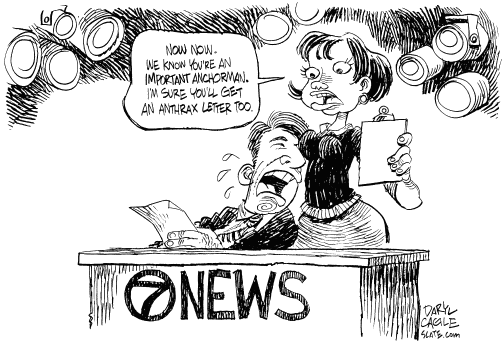[[Page 123 STAT. 5]]
Public Law 111-2
111th Congress
An Act
To amend title VII of the Civil Rights Act of 1964 and the Age
Discrimination in Employment Act of 1967, and to modify the operation of
the Americans with Disabilities Act of 1990 and the Rehabilitation Act
of 1973, to clarify that a discriminatory compensation decision or other
practice that is unlawful under such Acts occurs each time compensation
is paid pursuant to the discriminatory compensation decision or other
practice, and for other purposes. <
Be it enacted by the Senate and House of Representatives of the
United States of America in Congress assembled, <
SECTION 1. SHORT TITLE.
This Act may be cited as the ``Lilly Ledbetter Fair Pay Act of
2009''.
SEC. 2. <
Congress finds the following:
(1) The Supreme Court in Ledbetter v. Goodyear Tire & Rubber
Co., 550 U.S. 618 (2007), significantly impairs statutory
protections against discrimination in compensation that Congress
established and that have been bedrock principles of American
law for decades. The Ledbetter decision undermines those
statutory protections by unduly restricting the time period in
which victims of discrimination can challenge and recover for
discriminatory compensation decisions or other practices,
contrary to the intent of Congress.
(2) The limitation imposed by the Court on the filing of
discriminatory compensation claims ignores the reality of wage
discrimination and is at odds with the robust application of the
civil rights laws that Congress intended.
(3) With regard to any charge of discrimination under any
law, nothing in this Act is intended to preclude or limit an
aggrieved person's right to introduce evidence of an unlawful
employment practice that has occurred outside the time for
filing a charge of discrimination.
(4) Nothing in this Act is intended to change current law
treatment of when pension distributions are considered paid.
SEC. 3. DISCRIMINATION IN COMPENSATION BECAUSE OF RACE, COLOR,
RELIGION, SEX, OR NATIONAL ORIGIN.
Section 706(e) of the Civil Rights Act of 1964 (42 U.S.C. 2000e-
5(e)) is amended by adding at the end the following:
``(3)(A) For purposes of this section, an unlawful employment
practice occurs, with respect to discrimination in compensation in
violation of this title, when a discriminatory compensation decision or
other practice is adopted, when an individual becomes subject to a
discriminatory compensation decision or other practice, or
[[Page 123 STAT. 6]]
when an individual is affected by application of a discriminatory
compensation decision or other practice, including each time wages,
benefits, or other compensation is paid, resulting in whole or in part
from such a decision or other practice.
``(B) In addition to any relief authorized by section 1977A of the
Revised Statutes (42 U.S.C. 1981a), liability may accrue and an
aggrieved person may obtain relief as provided in subsection (g)(1),
including recovery of back pay for up to two years preceding the filing
of the charge, where the unlawful employment practices that have
occurred during the charge filing period are similar or related to
unlawful employment practices with regard to discrimination in
compensation that occurred outside the time for filing a charge.''.
SEC. 4. DISCRIMINATION IN COMPENSATION BECAUSE OF AGE.
Section 7(d) of the Age Discrimination in Employment Act of 1967 (29
U.S.C. 626(d)) is amended--
(1) in the first sentence--
(A) by redesignating paragraphs (1) and (2) as
subparagraphs (A) and (B), respectively; and
(B) by striking ``(d)'' and inserting ``(d)(1)'';
(2) in the third sentence, by striking ``Upon'' and
inserting the following:
``(2) Upon''; and
(3) by adding at the end the following:
``(3) For purposes of this section, an unlawful practice occurs,
with respect to discrimination in compensation in violation of this Act,
when a discriminatory compensation decision or other practice is
adopted, when a person becomes subject to a discriminatory compensation
decision or other practice, or when a person is affected by application
of a discriminatory compensation decision or other practice, including
each time wages, benefits, or other compensation is paid, resulting in
whole or in part from such a decision or other practice.''.
SEC. 5. APPLICATION TO OTHER LAWS.
(a) <
of 1990.--The amendments made by section 3 shall apply to claims of
discrimination in compensation brought under title I and section 503 of
the Americans with Disabilities Act of 1990 (42 U.S.C. 12111 et seq.,
12203), pursuant to section 107(a) of such Act (42 U.S.C. 12117(a)),
which adopts the powers, remedies, and procedures set forth in section
706 of the Civil Rights Act of 1964 (42 U.S.C. 2000e-5).
(b) <
amendments made by section 3 shall apply to claims of discrimination in
compensation brought under sections 501 and 504 of the Rehabilitation
Act of 1973 (29 U.S.C. 791, 794), pursuant to--
(1) sections 501(g) and 504(d) of such Act (29 U.S.C.
791(g), 794(d)), respectively, which adopt the standards applied
under title I of the Americans with Disabilities Act of 1990 for
determining whether a violation has occurred in a complaint
alleging employment discrimination; and
(2) paragraphs (1) and (2) of section 505(a) of such Act (29
U.S.C. 794a(a)) (as amended by subsection (c)).
(c) Conforming Amendments.--
(1) Rehabilitation act of 1973.--Section 505(a) of the
Rehabilitation Act of 1973 (29 U.S.C. 794a(a)) is amended--
[[Page 123 STAT. 7]]
(A) in paragraph (1), by inserting after ``(42
U.S.C. 2000e-5 (f) through (k))'' the following: ``(and
the application of section 706(e)(3) (42 U.S.C. 2000e-
5(e)(3)) to claims of discrimination in compensation)'';
and
(B) in paragraph (2), by inserting after ``1964''
the following: ``(42 U.S.C. 2000d et seq.) (and in
subsection (e)(3) of section 706 of such Act (42 U.S.C.
2000e-5), applied to claims of discrimination in
compensation)''.
(2) Civil rights act of 1964.--Section 717 of the Civil
Rights Act of 1964 (42 U.S.C. 2000e-16) is amended by adding at
the end the following:
``(f) Section 706(e)(3) shall apply to complaints of discrimination
in compensation under this section.''.
(3) Age discrimination in employment act of 1967.--Section
15(f) of the Age Discrimination in Employment Act of 1967 (29
U.S.C. 633a(f)) is amended by striking ``of section'' and
inserting ``of sections 7(d)(3) and''.
SEC. 6. <
This Act, and the amendments made by this Act, take effect as if
enacted on May 28, 2007 and apply to all claims of discrimination in
compensation under title VII of the Civil Rights Act of 1964 (42 U.S.C.
2000e et seq.), the Age Discrimination in Employment Act of 1967 (29
U.S.C. 621 et seq.), title I and section 503 of the Americans with
Disabilities Act of 1990, and sections 501 and 504 of the Rehabilitation
Act of 1973, that are pending on or after that date.
Approved January 29, 2009.
LEGISLATIVE HISTORY--S. 181 (H.R. 11):
---------------------------------------------------------------------------
CONGRESSIONAL RECORD, Vol. 155 (2009):
Jan. 15, 21, 22, considered and passed Senate.
Jan. 27, considered and passed House.
DAILY COMPILATION OF PRESIDENTIAL DOCUMENTS (2009):
Jan. 29, Presidential remarks.
Notice Concerning the Lilly Ledbetter Fair Pay Act of 2009
On January 29, 2009, President Obama signed the Lilly Ledbetter Fair Pay Act of 2009 ("Act"), which supersedes the Supreme Court's decision in Ledbetter v. Goodyear Tire & Rubber Co., Inc., 550 U.S. 618 (2007). Ledbetter had required a compensation discrimination charge to be filed within 180 days of a discriminatory pay-setting decision (or 300 days in jurisdictions that have a local or state law prohibiting the same form of compensation discrimination).
The Act restores the pre-Ledbetter position of the EEOC that each paycheck that delivers discriminatory compensation is a wrong actionable under the federal EEO statutes, regardless of when the discrimination began. As noted in the Act, it recognizes the "reality of wage discrimination" and restores "bedrock principles of American law."
Under the Act, an individual subjected to compensation discrimination under Title VII of the Civil Rights Act of 1964, the Age Discrimination in Employment Act of 1967, or the Americans with Disabilities Act of 1990 may file a charge within 180 (or 300) days of any of the following:
when a discriminatory compensation decision or other discriminatory practice affecting compensation is adopted;
when the individual becomes subject to a discriminatory compensation decision or other discriminatory practice affecting compensation; or
when the individual's compensation is affected by the application of a discriminatory compensation decision or other discriminatory practice, including each time the individual receives compensation that is based in whole or part on such compensation decision or other practice.
The Act has a retroactive effective date of May 28, 2007, and applies to all claims of discriminatory compensation pending on or after that date.
Notice to Potential Charging Parties: If you are aware of unexplained differences between your own compensation and coworkers' compensation and believe that the difference is because of your race, color, religion, sex, national origin, age, or disability, you should call 1-800-669-4000 or 1-800-669-6820 (TTY) for more information on filing a charge with the EEOC.
--------------------------------------------------------------------------------


























